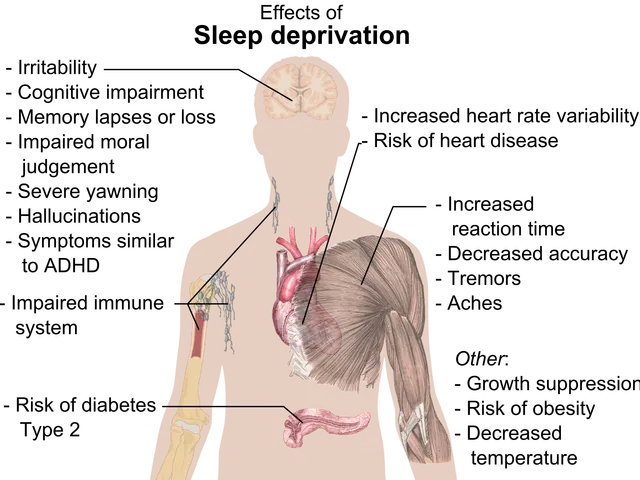Uncovered connection between vitamin D and contraceptive methods revealed
Pill-Popping Women: What Estrogen-Based Contraceptives Do to Your Vitamin D Levels
Vitamin D, a crucial nutrient essential for maintaining calcium and phosphorous levels in the blood, plays a vital role in bone health. It helps your body absorb calcium, an essential component of bones, and food sources such as fish and eggs are rich in this vitamin. Surprisingly, around 90 percent of your vitamin D isn't from food, but rather from a chemical reaction in your skin after exposure to sunlight.
A lack of vitamin D can lead to serious health issues like rickets and osteomalacia, where your bones weaken and soften. During pregnancy, it's especially important since vitamin D helps in the formation of bones. So, it's critical to ensure expectant mothers don't suffer from a deficiency.
Enter Dr. Quaker E. Harmon, a researcher from the National Institutes of Health's National Institute of Environmental Health Sciences in Research Triangle Park, NC. Intrigued by possible changes in vitamin D levels linked to taking oral contraceptives, she embarked on a study.
Victims or Victors? The Link Between Contraception and Vitamin D
Harmon and her team conducted a cross-sectional analysis using data from the Study of Environment, Lifestyle, and Fibroids (SELF). This project focused on nearly 1,700 African-American women aged 23-34 living in Detroit, MI. The study surveyed women about their contraceptive use, time spent outdoors, and any vitamin D supplements they took.
In total, 1,662 women provided blood samples to measure their levels of vitamin D (25-hydroxy vitamin D). Their findings? Women using contraception containing estrogen tended to have higher vitamin D levels compared to other women.
Even after factoring in confounding variables like seasonal exposure to light, the association remained significant. Perhaps these women spent more time outdoors? Not so, says Harmon: "We could not find any behavioral differences such as increased time spent outdoors to explain the increase."
The study's results indicated that current users of birth control had higher levels of vitamin D, while past users maintained average vitamin D levels. After adjusting for confounding variables, the use of contraceptive pills, patches, or rings containing estrogen was associated with a 20 percent increase in vitamin D levels.
Pregnancy and the Plunge in Vitamin D
These findings, published this week in the Journal of Clinical Endocrinology & Metabolism, imply that women planning to become pregnant could risk vitamin D deficiency when they discontinue birth control. Harmon advises, "For women who are planning to stop using birth control, it is worth taking steps to ensure that vitamin D levels are adequate while trying to conceive and during pregnancy."
Harmon also revealed that they are investigating the long-term consequences of this relationship and working on a separate group to explore how vitamin D varies across the menstrual cycle.
A Mysterious Connection: Why Does Estrogen Boost Vitamin D?
Research suggests that estrogen might alter the metabolism of vitamin D, but the explanation remains elusive. Harmon explains, "We do not know why vitamin D levels are higher. Other work suggests that the levels of other vitamin D metabolites are changed when women use estrogen-containing contraception."
Race might play a role in this association, but Harmon believes it's not related to race: "In the United States, African-American women are more likely to be vitamin D-deficient, so small increases or decreases in their vitamin D concentrations may be more impactful."
Vitamin D, Estrogen, and the Dance of Hormones
A well-balanced hormonal environment is key to reproductive health, and vitamin D plays a role in this delicate dance by interacting with the vitamin D receptor (VDR) in reproductive tissues. Insufficient vitamin D may cause excess estrogen activity, affecting menstrual regularity and endometrial health.
Relatedly, vitamin D upregulates genes like HOXA10 and HOXA11 in the endometrium, which are crucial for fertility and preparing the uterine lining for embryo implantation.
Vitamin D supplementation may help restore hormonal balance, reduce inflammation, and support healthy endometrial tissue growth, benefiting women planning pregnancy or managing conditions like dysmenorrhea or endometriosis.
- The important role of cultural awareness in understanding the impact of contraceptives on vitamin D levels should not be overlooked.
- In the realm of health-and-wellness and women's health, it's essential to consider the implications of estrogen-based contraceptives on vitamin D levels.
- The science behind behavioral patterns and vitamin D absorption is still under investigation, as the increase in vitamin D levels among contraceptive users cannot be simply explained by increased outdoor time.
- Multi-vitamin supplements designed specifically for women may be beneficial for those discontinuing birth control, as they may help prevent vitamin D deficiencies that can arise during pregnancy.
- Nutrition plays a key role in maintaining optimal vitamin D levels, and vitamin-rich foods such as fish and eggs should be incorporated into the diets of women during pregnancy to support bone health and the development of their babies.
- Osteomalacia, a bone softening disease, can be caused by vitamin D deficiencies, making it crucial for expectant mothers to ensure they maintain adequate levels of this vital nutrient.
- Women's vitamins, specifically those containing vitamin D, are essential for women's health and well-being, especially during pregnancy.
- The dance of hormones in the body is complex, and vitamin D, through its interaction with the vitamin D receptor (VDR) in reproductive tissues, plays a critical role in maintaining hormonal balance and reproductive health.







